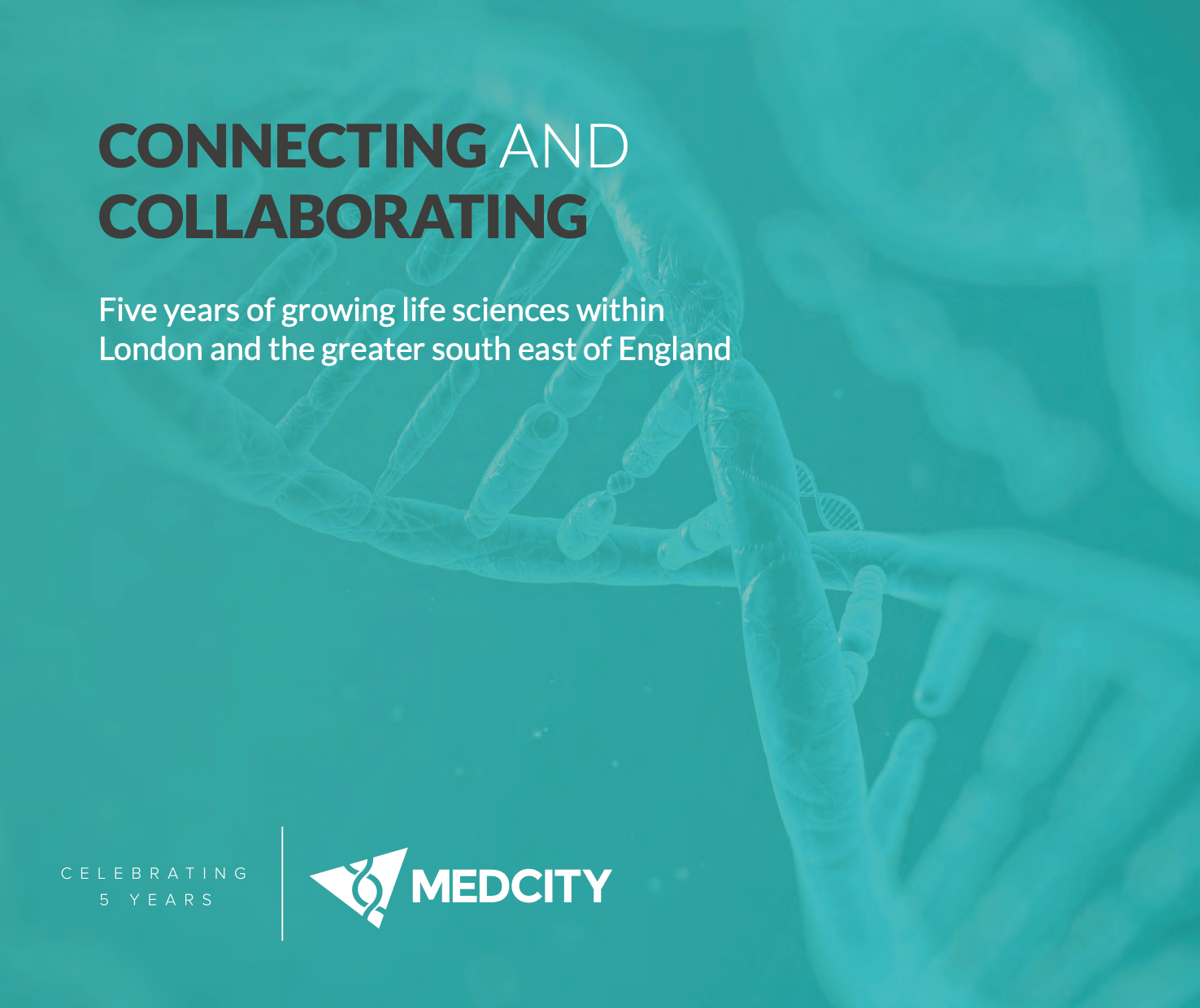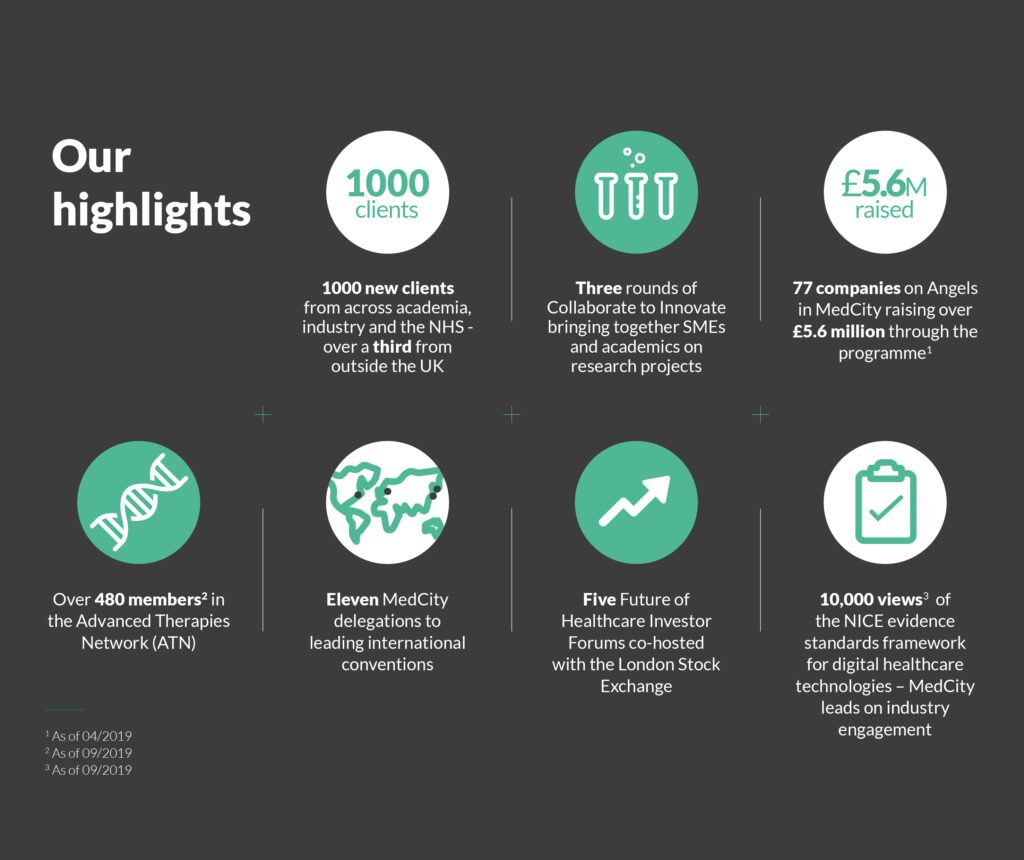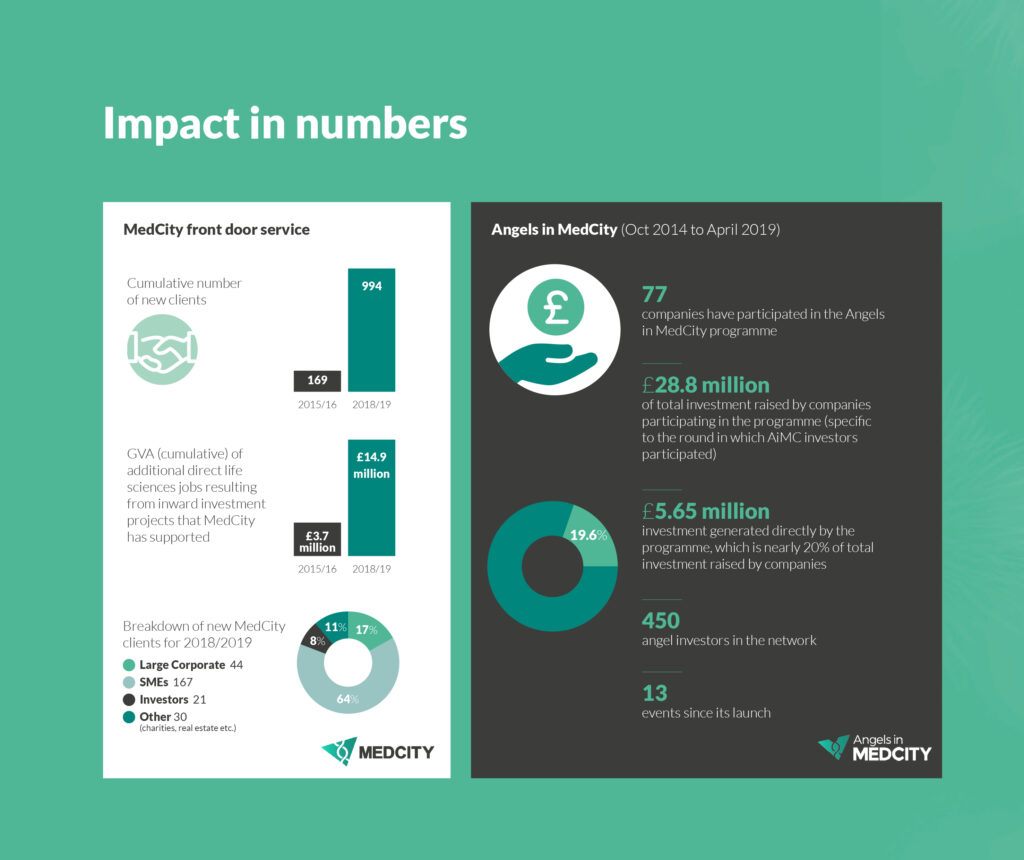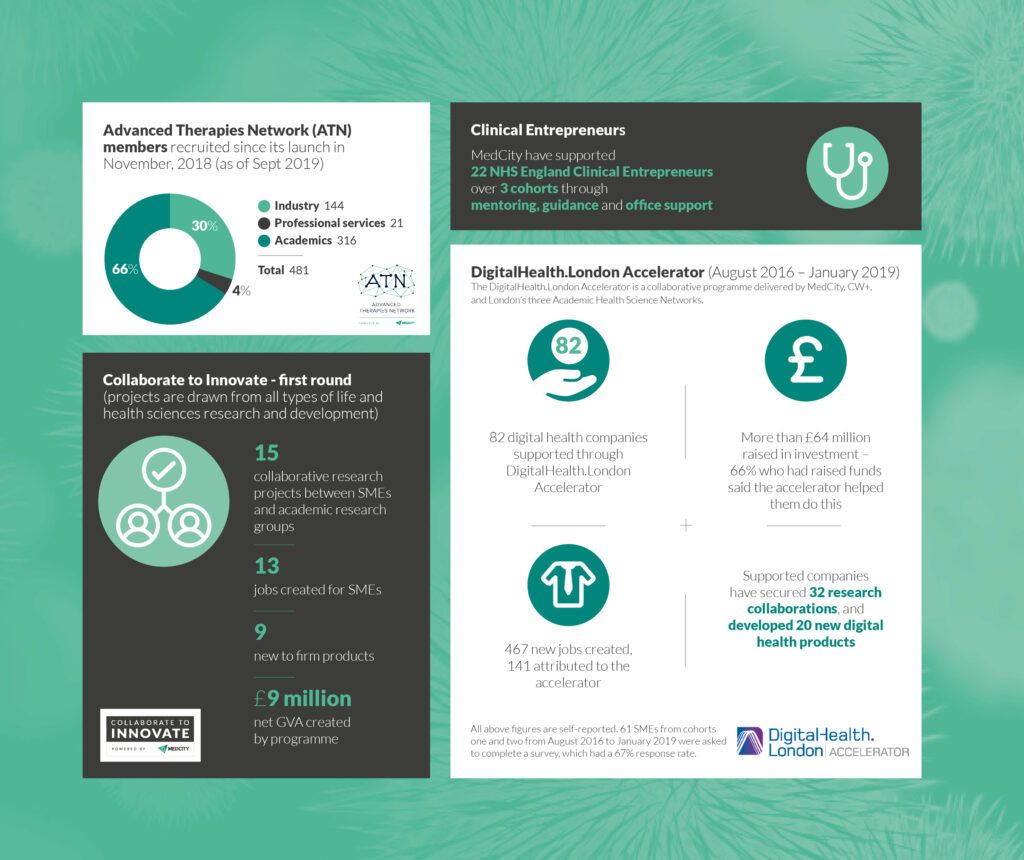
MedCity’s Five Year Report: Connecting and Collaborating
This year MedCity celebrates its fifth anniversary. In April 2014, the Mayor of London launched MedCity at the Hammersmith Campus, Imperial College London.
Founded by the Academic Health Science Centres of the region, MedCity’s aim was to stimulate collaboration across the life sciences sector and, through this, drive economic growth. Understandably it was met with a mixed response. At one level there was excitement that there was a commitment both politically and financially to support the sector in London and the Greater South East. At another level there were questions about how this would be practically implemented and what MedCity would actually ‘look like’. Most reports in the press at the time, which included Financial Times, Guardian, Telegraph, New Scientist and Forbes, celebrated MedCity’s launch but also took a ‘wait-and-see’ approach.
So, after five years of development and growth we are able to answer some of those questions, and have published a Five Year Report.
Our support of companies, the ‘front door’ and insight to the region’s strengths:
Since MedCity began, we have worked with over 1,000 companies and organisations who have been looking for insight into one or several aspects of the life sciences sector, whether that be investment, manufacturing, clinical trials, real estate or a means to partner. No two requests are ever the same and for some it is a one-off conversation whilst for others we have developed a deeper relationship and helped at various points along the company’s development. Over a third of these companies and organisations have been from outside the UK.
MedCity has attended or led delegations to BIO-US and BIO-Japan every year and, on average, we are involved in about 60 life sciences events a year. Based on conversations with stakeholders, we have published eight reports on the state of different aspects of the sector including digital health, cell and gene therapies, medtech and neuroscience. Alongside this we have produced cross-cutting analyses looking into investment and life sciences space in the region.
Over the last five years we have listened to the needs of the UK’s life sciences ecosystem and helped develop means to overcome some of the current challenges to health innovation. One key example of this is our work on the development of the evidence standards framework with NICE, NHS England and Public Health England which has provided standards for companies working with digital health technologies who are looking to demonstrate their effectiveness to the NHS.

Developing vehicles for successful connections, collaborations and growth:
We have launched three programmes that work across academia, industry and the NHS. Since we started our Angels in MedCity programme in 2015 we have had 77 companies pitch at our events which has helped secure them a total of £5.6 million of angel investment. Still in its early years, another of our programmes, Collaborate to Innovate, has created 15 successful partnerships between life science SMEs and academic research groups and there will be two more cohorts announced soon, working in advanced therapies and stroke research. Launched in November 2017 the Advanced Therapies Network as part of London Advanced Therapies now has nearly 400 members across industry, academia and the NHS and we have run two events with two more coming up in September and November.
There are more figures we could provide but probably none of them give a real insight into the nature of our work. The business of connecting and catalysing is not easy to measure and over the years of collecting data on our impact we recognise that the real body of our work lies in the encounters at our events, the links made between people with common visions and the sharing of knowledge. It is this that forms the basis of the life sciences ‘community’ we are building.
Looking to the future MedCity plans to keep connecting this community. Exciting shifts are happening to bring academia, industry and the NHS closer together both in terms of physical location and the nature of their work. White City and King’s Cross Knowledge Quarter in London, the Babraham Research Campus in Cambridge and Harwell Healthtec Cluster in Oxford are shining examples of this. We have been at the forefront of this development and plan to keep working to ensure these life sciences hubs deliver innovative and collaborative work.
MedCity’s programmes will continue to bring together the right people in the right place to produce real investments, real partnerships and real impact for the sector and region. Alongside this we are also working with other life sciences hubs and organisations including Northern Health Science Alliance (NHSA), MediWales, Life Sciences Hub Wales and the newly founded HIRANI (Health Innovation Research Alliance Northern Ireland) to ensure we are as connected as possible to attract and support foreign investment, which was one of MedCity’s founding aspirations.
Together with the NHSA we were recently awarded £4.5 million from Research England to foster economic growth and help speed up the development of health innovations through linking academia, the NHS and companies across the UK’s thriving life science related industry from small start-up enterprises to large pharma companies.
Five years on, we are providing answers to some of the questions raised and have become an organisation with which international clusters want to collaborate. There certainly has been no shortage of political, social and technological changes that have happened during this time, which has meant that MedCity’s work has become even more important in providing an open door to the region. Indeed the sustained interest in life sciences within our region and the UK demonstrates the commitment to this sector and the enduring value that life sciences hold for patients, the economy and society. We’re looking forward to the next five years!

